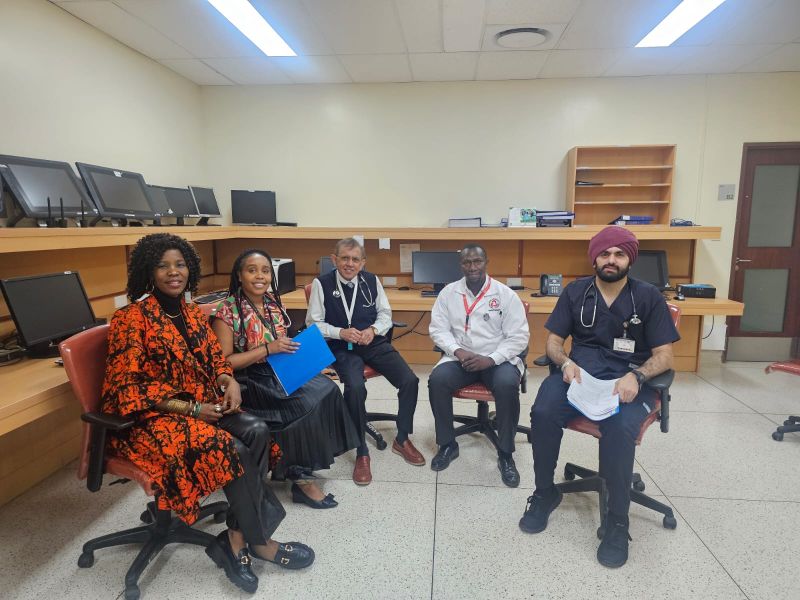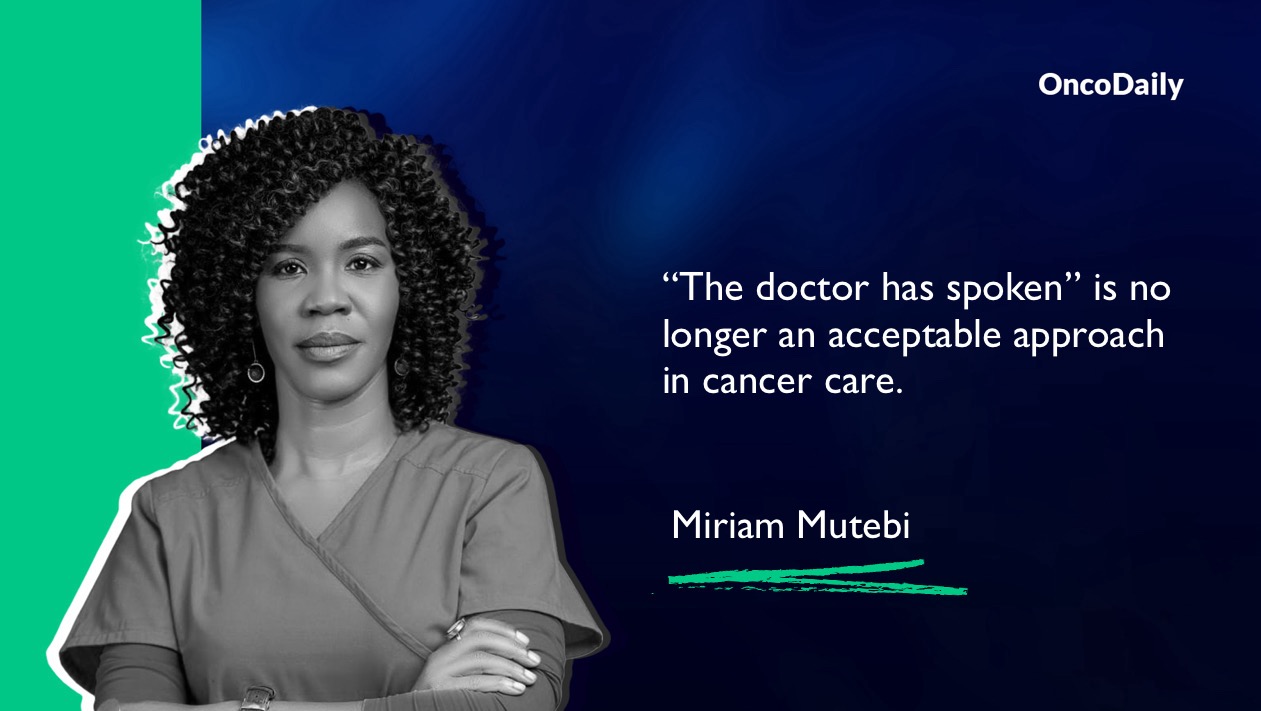Miriam Mutebi shared on LinkedIn:
“‘The doctor has spoken’ is no longer an acceptable approach in cancer care.
The paternalistic model of medicine simply doesn’t cut it.
Today, multidisciplinary teams (MDTs) play a crucial role in creating holistic and patient-centered treatment plans.
Cancer is complex, and no single profession can provide all the necessary care.
Leveraging the expertise of various specialists in the care continuum is key to ensuring every aspect of a patient’s health is considered.
MDTs harness the collective knowledge of oncologists, surgeons, radiologists, pathologists, nurses, social workers, and patient navigators.
This ‘team’ approach improves clinical outcomes and helps patients feel seen and understood, which is crucial in managing an often bewildering diagnosis.
But what does this look like in practice?
For starters, shared decision-making within a multidisciplinary setup empowers patients to take ownership of their treatment and feel comfortable expressing their fears and concerns.
It’s not about doctors dictating what should be done or which treatment a patient should pursue; it’s about discussing options with the patient and their family, ensuring they are well informed and involved.
At Aga Khan University, after our tumor board discussions, patients can bring in their families to discuss overall treatment plan at a ‘combined clinic’ that includes surgery, medical and radiation oncology, nursing, and allied services (part of the multidisciplinary breast clinic team pictured below).
Shared decision-making, however, can take many forms and should be contextualized to one’s setting.
This collaboration promotes a treatment plan that is not only clinically sound but also tailored to patient’s unique circumstances—that could mean adjusting chemotherapy schedules, accommodating long-distance travel to cancer clinics, arranging social worker visists to understand a patient’s unique circumstances, or setting radiotherapy appointments to fit around school pick-up times, etc.
Our initial experience with these combined clinics as shared at the Dakar AORTIC- Africa conference 2023, showed treatment plans changed in about 10% of patients following discussions, and satisfaction with care was about 98%, with increased patient engagement in their care.
The MDT approach also encourages better adherence to treatment; patients are more likely to follow through with a plan they have a say in.
It also involves breaking down complex jargon into terms patients can understand, regardless of their education level/ background, ensuring they fully grasp their treatment journey.
Ultimately, MDTs embody the principle: ‘teamwork makes the dream work.’
By encouraging healthy dialogues, leveraging the best expertise, and keeping patients central to this process, they develop treatment plans that work for the patient—clinically, emotionally and logistically.
Hence, support not just the treatment of the disease but the holistic well-being of the patient.”

Source: Miriam Mutebi/LinkedIn
Miriam Mutebi is a Breast Surgical Oncologist and Assistant Professor in the Department of Surgery at the Aga Khan University Hospital in Nairobi, Kenya. She is the President of the African Organization for Research and Training in Cancer (AORTIC), and past president for Kenya Society of Hematology and Oncology (KESHO) and on the Board of Directors of the Union for International Cancer Control (UICC). She is the co-founder of the Pan African Women’s Association of Surgeons and is part of the Kenya Association of Women Surgeons.
She is an avid supporter for the education and support for women, especially in surgery and she aims to provide mentorship for women in surgery and to improve women’s health and surgical care in Africa. She is currently pursuing a pilot’s license in order to extend breast care services to marginalized areas.


